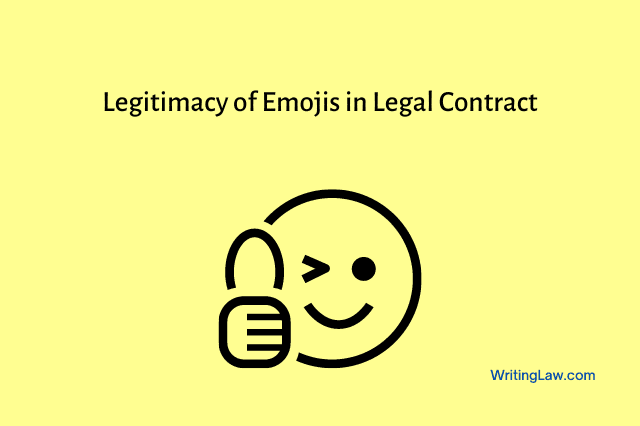
In a recent case of South West Terminal Ltd. vs Achter Land, a Canadian judge ruled that even an emoji, a “thumbs-up” emoji (👍) in particular, shall be a valid confirmation and a non-traditional contract acceptance.
The ruling in this case from the Court of King’s Bench for Saskatchewan, Battleford, Canada (the province’s second-highest court) determined that employing a “thumbs-up” emoji (👍) in a text message can be considered equivalent to a valid signature, signifying acceptance of a contract.
Although a signature denotes the identity and validity of a transaction, it is classical and traditional. However, it does not imply the exclusion of a contemporary signature like the thumbs-up emoji. Let us talk about this case.
Background of the Case
The case referred to is South West Terminal Ltd. (Plaintiff) vs Achter Land (Defendant), as declared by the King’s Bench for Saskatchewan.
On March 26, 2021, the parties allegedly entered into a deferred delivery purchase agreement (the “flax contract”), whereby SWT (South West Terminal Ltd.) promised to buy.
Achter agreed to supply 87 metric tonnes of flax at a fixed price of $669.26 per tonne, with delivery between November 1 and November 30, 2021. Achter delivered no flax.
The plaintiff sued for contract breach and $82200 in damages, plus interest and fees. The defendant disputed entering into the contract and, alternatively or additionally, invokes the legal defence outlined in section 6(1) of The Sale of Goods Act, RSS 1978, Chapter S-1 (SGA), arguing that any contract is void since no note or memorandum of the transaction was made or signed by the parties.
Kent Mickleborough [Kent] began working for SWT as a grain buyer in 2015, and at least one year before that, Chris, the defendant Achter’s acting mind, had a long-standing business relationship with SWT.
The fundamental facts of this case, which mainly involve contract law and SGA (Sale of Goods Act) application, are not usually in question. The use of the thumbs-up emoji and its significance in the particular circumstances of this legal dispute distinguish this case from others.
Court Ruling
The Court observed an undisputed history of repeatedly entering into deferred delivery purchase agreements that both parties knew and accepted to be legally valid and binding.
It is important to note that each time Kent added to the offered contract, “Please confirm terms of durum contract,” and Chris did so by succinctly texting “looks good“, “ok” or “yup“, the parties clearly understood these words were meant to be confirmation of the contract.’
The parties were in complete agreement that Chris’s brief statement was intended to affirm the terms of the contract rather than merely acknowledge receipt of the document by Chris. The evidence is overwhelming, and no other plausible or rational explanation exists. Chris met the grain delivery deadline and received payment. He only acknowledged the receipt of a contract, and there was no proof.
Validity of a Contract: What Does the Indian Contract Act Say?
Section 10 of the Indian Contract Act discusses the validity of contracts and what agreements may be considered contracts. All those agreements made with consensus ad idem (free will of both parties), lawful consideration, lawful object and those that haven’t expressly been declared void are all contracts as under the Act.
Related: Definition and Essentials of Acceptance in Contract Act
Conclusion
It would be interesting to see whether Indian courts would deem the use of the thumbs-up emoji to be legitimate acceptance of the conditions of the contract and thereby consider a contract valid if all the other requirements of a valid contract are also met.
While speaking with a prospective landlord, a supplier, a service provider, or an employee, it is crucial to use caution while using emojis because they may be construed as binding communication.
Emojis have consequences, so it’s best to be aware of them and think about what kind of influence they might have. They continue to score lower than other traditional methods of conducting contracts because getting into a formal agreement is a practice meant to reduce ambiguity.
- Legitimacy of Emojis (👍) in a Legal Contract - 14th April 2024
- Same-Sex Marriage in India - 11th January 2024
- What Is Glass Cliff in Corporate Law – Explained With Real Examples and Tips - 1st May 2023







